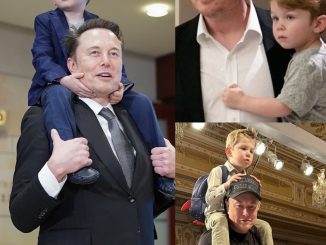
In recent years, Elon Musk — the billionaire CEO of Tesla and SpaceX — has become increasingly vocal about political and cultural issues. One of his most talked-about statements came when he declared, “Woke is not for kids,” sparking both praise and backlash from the public and media alike.
The term “woke” originated as a call to awareness about social injustices, particularly racial and gender equality. However, in recent political discourse, it has become a polarizing term. Critics of “woke culture” argue that it often goes too far and imposes ideology on young minds, especially in schools and media targeted at children. Supporters, on the other hand, view it as a necessary step towards inclusion and social progress.
Musk’s statement appears to align with growing conservative concerns that progressive values are being pushed on children too early. The image attached to his comment features a pride parade juxtaposed with Musk himself shrugging, emphasizing his stance on the matter. For some, this reflects a desire to protect children from complex societal debates until they are older. For others, it’s seen as dismissive of LGBTQ+ visibility and the broader movement toward inclusion.
This is not the first time Musk has expressed views that diverge from mainstream corporate stances. As the owner of X (formerly Twitter), he has positioned himself as a defender of “free speech,” even if that means platforming controversial opinions. His stance on “woke culture” fits into a broader narrative of skepticism toward political correctness.
Whether one agrees with Musk or not, his comments continue to influence public discourse, showing how figures in tech and business are increasingly shaping the cultural landscape. The debate around what children should be exposed to is far from over — and Musk is clearly not afraid to lead that conversation.


